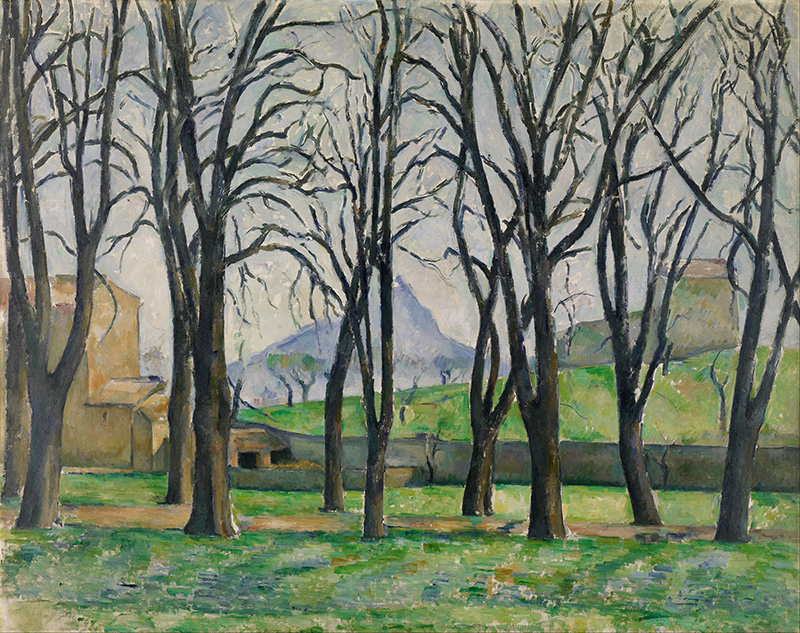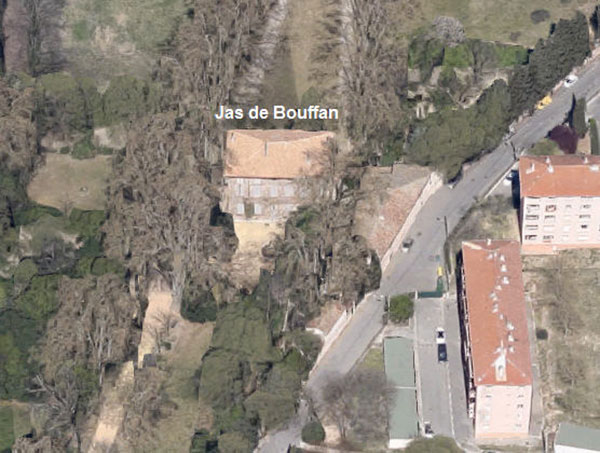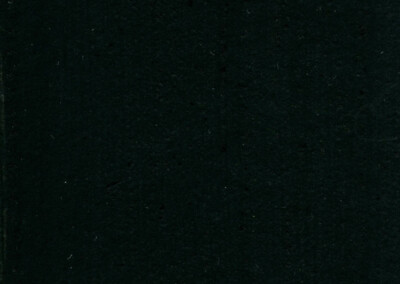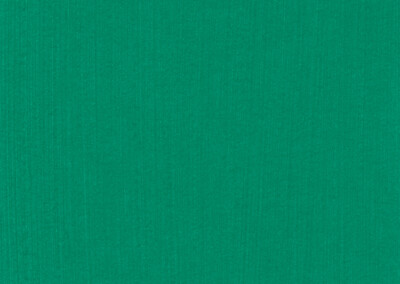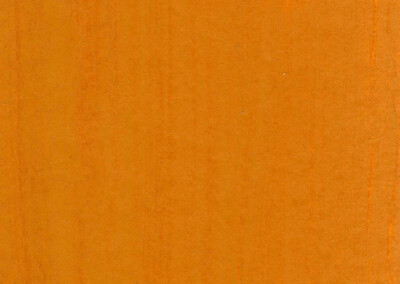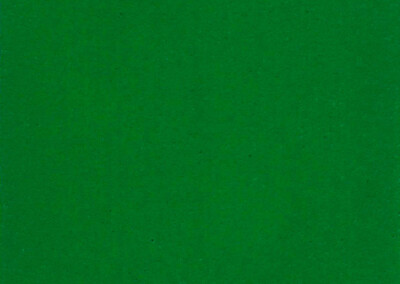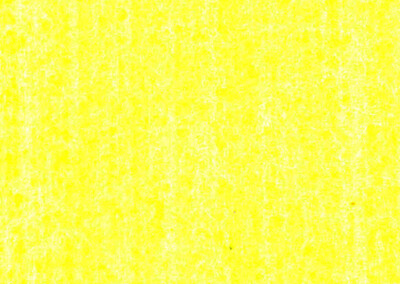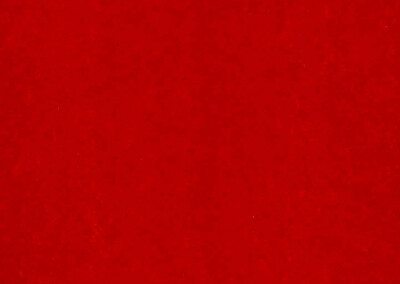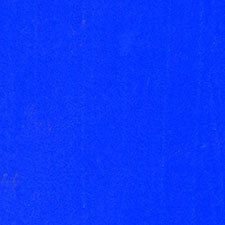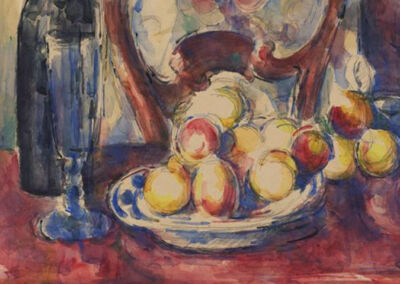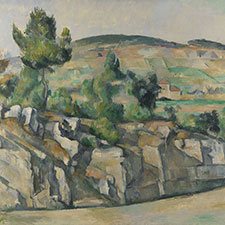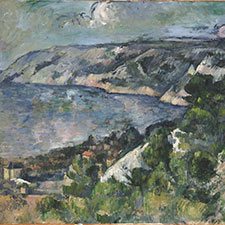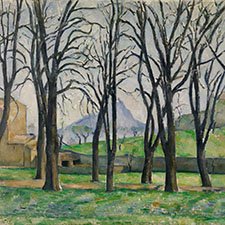Paul Cézanne, Chestnut Trees at Jas de Bouffan
ca 1885-86Paintings sorted by Historical period | Painter | Subject matter | Pigments used
Text by Minneapolis Institute of Art
The painting was bought by the Minneapolis Institute of Art in 1950 and the following quotes are taken from an article written at the time of the purchase (1).
… “The painting is a fully representative work of the artist’s mature period. It was painted between 1885 and 1887, when Cézanne was producing some of his most beautiful and significant canvases of Mont Sainte-Victoire, Gardanne, and the Jas de Bouffan. The last, which was his favorite motif after Mont Sainte-Victoire, appeared in fifty-two works dating from his youth until the estate was sold in 1899. Many views of the Jas de Bouffan depict this same avenue of chestnut trees, but this is the only one to present the scene in winter. In the bold, full forms, here stripped by season and artist together of the incidental elements that would obscure their essential character, the spectator experiences a powerful awareness of the eternal and immutable quality of nature.”
and further on
… “The somber color scheme of gray, gray-green, and gray-blue, heightened only by the warm yellow planes of the farm buildings, accords perfectly with the stark character of the scene. The application of the pigment, thinly laid so that the canvas shows through in spots, was deliberate, serving to bind small color areas together and to emphasize the contours. This technique provides a further example of Cézanne’s knowing use of the painter’s language to emphasize the impression he wished to convey. He frequently adapted his technique to the nature of his motif, and possibly also to his mood. One of the outstanding characteristics of his paintings is that it displays both thought and emotion, and it is the emotion which lends it the enveloping quality missing in Poussin’s remote and frigid landscapes.Cézanne’s passionate desire to convey the exact impression of the sensations he experienced in the presence of nature led him by degrees to a study of the basic problems of painting: structure, the organization of volumes in space, color.”
References
(1) Unknown author, Institute Acquires a Great Cézanne: Chestnut Trees at Jas de Bouffan, The Minneapolis Institute of Arts Bulletin, 39, no. 1 (January 1950): 2-7.
Overview
Medium: Oil
Support: Canvas
Size: 71,1 cm x 90,2 cm
Art period: Post-Impressionism
Minneapolis Institute of Arts
Nr. 49,9
Pigments
Pigment Analysis
This pigment analysis is based on the work of Marigene H. Butler (1) and is shown in detail below
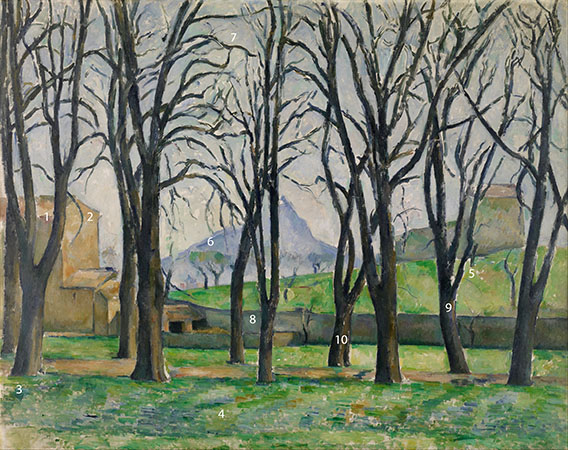
The red spot on the house wall (Nr 1) contains lead white, vermilion, emerald green, and artificial ultramarine.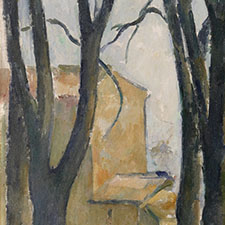
The yellow wall (Nr 2) contains lead white, vermilion, yellow ochre, and artificial ultramarine.
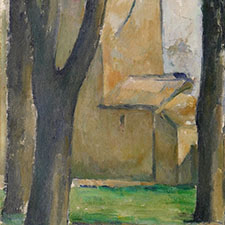
The dark green grass to the very left in the painting (Nr 3) is painted in lead white, emerald green, viridian, and artificial ultramarine.
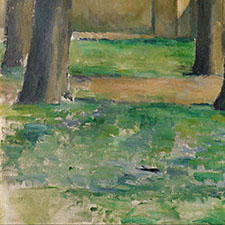
The yellow-green grass (Nr 4) contains mainly lead white and emerald green.
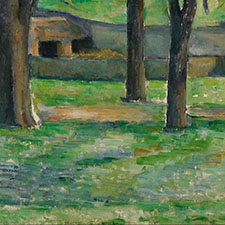
The deep yellow grass on the right side between both trees (Nr 5) was painted in pure chrome yellow.
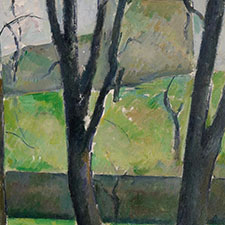
The blue mountain in the center of the image (Nr 6) contains lead white and artificial ultramarine.
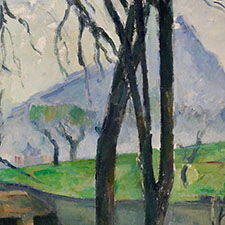
The mauve gray sky in the upper part (Nr 7) is painted in lead white and artificial ultramarine with small additions of emerald green and vermilion.
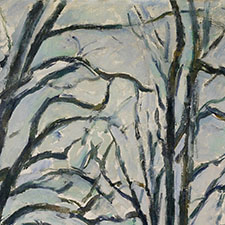
The gray wall to the right of the house (Nr 8) contains lead white, emerald green, and artificial ultramarine with small additions of vermilion.
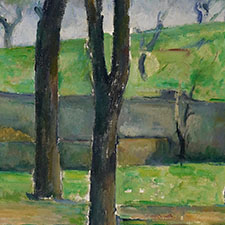
The mauve brown colored trees on the right (Nr 9) are painted in lead white, vermilion, emerald green, and artificial ultramarine and minute amounts of bone black.
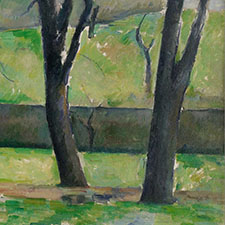
The trees in the middle of the painting are brown (Nr 10) and contain lead white, vermilion, little yellow ochre, emerald green, and artificial ultramarine with minute additions of bone black.
References
(1) Butler, M. H. (1973). An Investigation of Pigments and Technique in the Cezanne Painting, “Chestnut Trees.” Bulletin of the American Institute for Conservation of Historic and Artistic Works, 13(2), 77–85. Available as web publication and as pdf at the website of The McCrone Group.
Pigments Used in This Painting
Resources
Videos
Video: 'Jas de Bouffan' by Yacine AIT KACI
Video: 'Cézanne: Art and Life' by Museum of Fine Arts, Boston
Video: 'Cézanne in Provence by Karin Ek
Video: 'Paul Cézanne: The Father of Modern Art' by National Gallery London
Video: 'Paul Cézanne: A Collection of 645 Works (HD)' by LearnFromMasters
Publications and Websites
Publications
References
(1) Butler, M. H. (1973). An Investigation of Pigments and Technique in the Cezanne Painting, “Chestnut Trees.” Bulletin of the American Institute for Conservation of Historic and Artistic Works, 13(2), 77–85. Available as web publication and as pdf at the website of The McCrone Group.
(2) Unknown author, Institute Acquires a Great Cézanne: Chestnut Trees at Jas de Bouffan, The Minneapolis Institute of Arts Bulletin, 39, no. 1 (January 1950): 2-7.
(3) Daniel Robbins, Cézanne and Structure in Modern Painting, Metropolitan Museum of Art, 1963. Available online.
Websites
The Paintings, Watercolors, and Drawings of Paul Cezanne, An online catalogue raisonné under the direction of Walter Feilchenfeldt, Jayne Warman and David Nash

